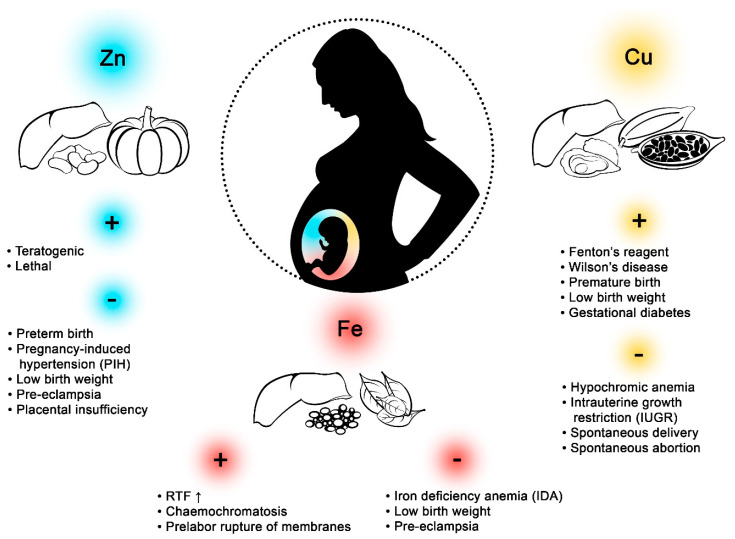Figure 1.
Effects of zinc (Zn), copper (Cu), and iron (Fe) on pregnant women. Excess Zn in the body during pregnancy can have teratogenic or lethal effects. A deficiency of this element may cause preterm birth, pregnancy-induced hypertension (PIH), low birth weight, preeclampsia, and placental insufficiency. High concentrations of Fe in pregnant women may increase the amount of reactive oxygen species (ROS,) lead to hemochromatosis and prelabor rupture of membranes. Fe deficiency, in turn, may lead to iron deficiency anaemia (IDA), low birth weight, and preeclampsia. Hypercupremia may lead to Wilson’s disease and Fenton’s reagent, and may contribute to premature birth, low birth weight, and gestational diabetes. Hypocupremia may lead to hypochromic anemia, intrauterine growth restriction (IUGR), spontaneous delivery, and spontaneous abortion. Large amounts of inorganic Fecan be found in lentils and spinach, while organic Fe is abundant in pork liver. Oysters, beef liver, and cocoa are rich sources of Cu, while calf liver, pumpkin, pork liver, and white beans have high concentrations of Zn.

